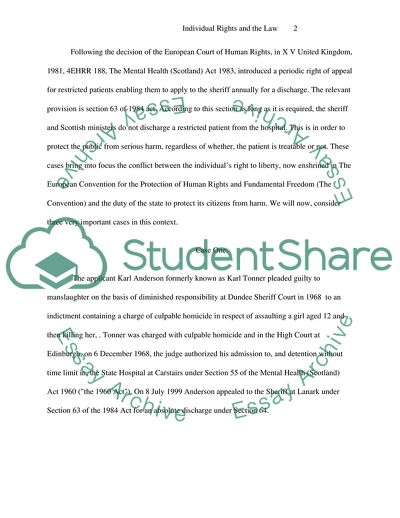Cite this document
(Assessment 1 - Individual Rights and the Law Assignment, n.d.)
Assessment 1 - Individual Rights and the Law Assignment. https://studentshare.org/law/1703115-assessment-1-individual-rights-and-the-law
Assessment 1 - Individual Rights and the Law Assignment. https://studentshare.org/law/1703115-assessment-1-individual-rights-and-the-law
(Assessment 1 - Individual Rights and the Law Assignment)
Assessment 1 - Individual Rights and the Law Assignment. https://studentshare.org/law/1703115-assessment-1-individual-rights-and-the-law.
Assessment 1 - Individual Rights and the Law Assignment. https://studentshare.org/law/1703115-assessment-1-individual-rights-and-the-law.
“Assessment 1 - Individual Rights and the Law Assignment”. https://studentshare.org/law/1703115-assessment-1-individual-rights-and-the-law.


